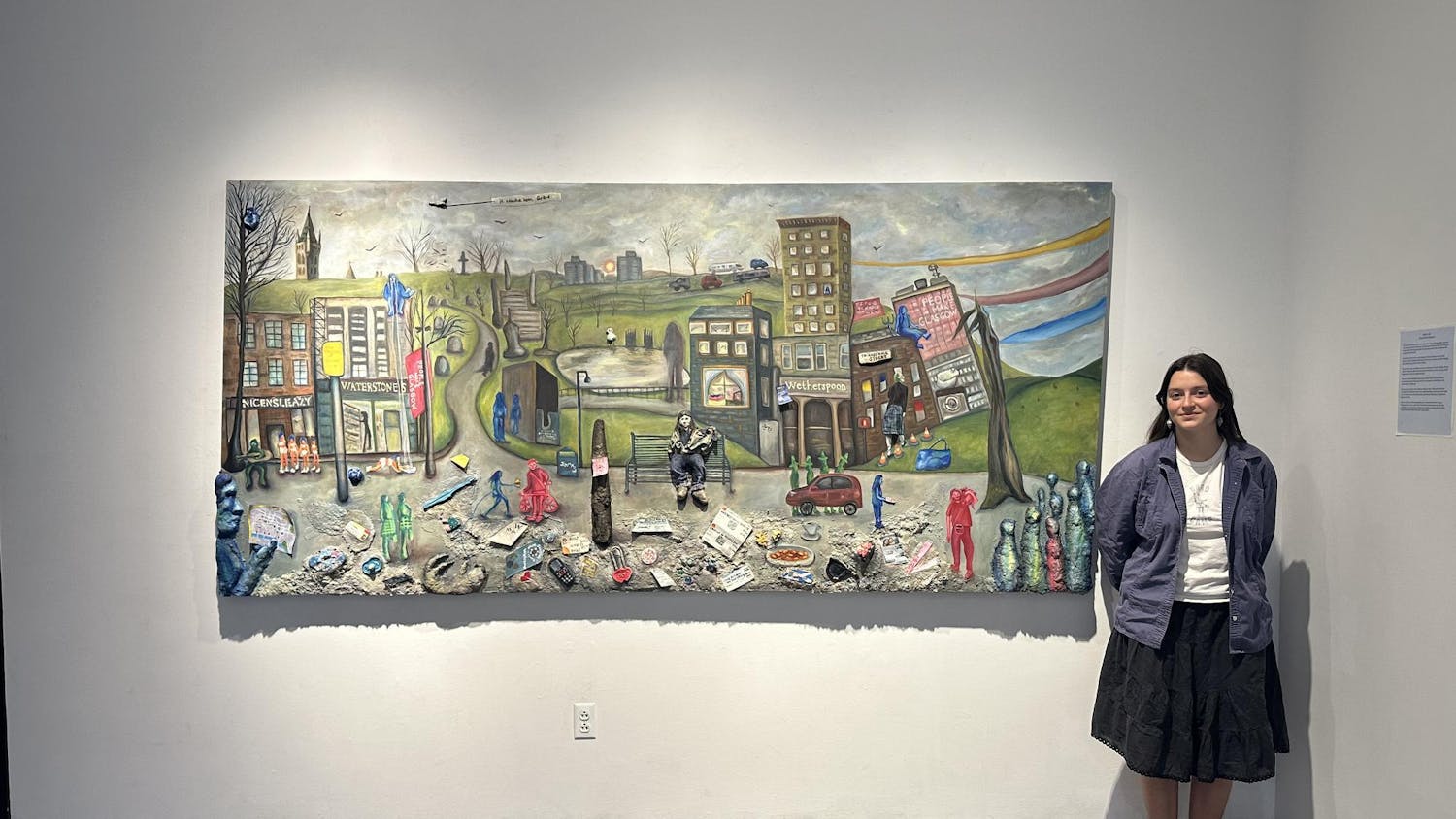Onstage, pity can be tedious. Self-pity — even more ghastly. Nostalgia, discontent and regret are all feverishly personal — and for an audience there is often a disconnect. Amid generational collisions and a disarmingly heartwarming emotional release, Trinity Repertory Company’s “Vanya and Sonia and Masha and Spike” broaches these themes with enough seriousness to compel viewers. Trinity Rep’s delivery has its fair share of party fouls, but Christopher Durang’s script and Curt Columbus’ direction are robust enough to counterbalance acting imperfection.
Those well-versed in theater will recognize “Vanya, Sonia, Masha, and Spike” as a literary homage to Russian playwright Anton Chekhov, who was fond of darker themes — regret, pity, dissatisfaction — ideas also explored in Durang’s play. “Vanya and Sonia and Masha and Spike” place characters from Chekhov’s plays — namely “The Seagull,” “Uncle Vanya” and “Three Sisters” — in the present.
“Chekhov likes to talk about how our lives are disconnected and how we find ourselves,” Columbus said. “This is a central theme of many Chekhov plays and the theme of this Durang piece.”
But the study of Chekhov is not a prerequisite for appreciating this production — Durang’s comedic fanfare is enough to make any audience laugh.
“The play is a well-constructed comedy, and for the most part you get out of its way,” Columbus said. “Durang has a very specific project in mind.”
Masha, played by a consistently alluring Phyllis Kay, returns home on a brief respite from her acting career, bringing with her a much younger, non-Chekhovian partner, Spike (Mark Larson). Her brother Vanya (Brian McEleney) and adopted sister Sonia (Janice Duclos) see an opportunity in their sister’s visit to vent about their lives’ regrets, while Masha seeks to exorcise the foul memories of the house by choosing to sell it.
In Trinity Rep’s production, the veteran actors outperform their younger counterparts. Vanya and Sonia, longtime protectors of their childhood home, appear well-studied in satirical delivery and calmly balance the more boisterous performances of those playing Masha and Spike. Though Sonia derives some personal power from her emotional exhaustion, she exhibits a palpable self-consciousness that runs contrary to her role as guardian of her childhood fortress. She often mixes up the satire of Durang’s play with dishonesty, leaving the audience with doubt about the truthfulness of her self-pity.
Masha is accompanied on her visit by Spike, played by a younger, up-and-coming actor. Spike has traits of an exhibitionist and affinities for rap and “Entourage,” and his inflated sense of self is meant as a mockery of the younger generation — but he is delirious and ultimately unbelievable. His egoism feels contrived, and his excessive performativity is accentuated by unintentional Brechtian reverbs throughout every line. Nina (Sylvia Kates), a next-door neighbor fascinated by both Masha and Spike, proves to be no more convincing. She prances like a dizzying sprite about the stage, alternating between self-doubt and empty presentation.
But “a truly Chekovian play will invite the audience onstage,” Columbus said, adding that he was “trying to stay within a Chekhovian kind of vocabulary.”
Staying close to the play’s Chekhovian roots, he delivers his messages well through honest laughs and frank conviction. The majority of “Vanya and Sonia and Masha and Spike” occurs downstage and in the audience’s face — complementing Durang’s script and strategy. Chekhov’s themes bloom through choreography that is at times tight, but stays far from becoming claustrophobic. It is Columbus’ simplicity that wins over the audience — he understands that opening oneself to happiness is never an easy idea to convey — even in a play so comedic.
There is a power in his simplicity that makes the frivolous crucial. So when Sonia, ever dedicated to her family, takes a phone call from a possible date and definite outsider, there is a pause. The audience listens. Sonia ruminates about the pros and cons of a date. Dedication and happiness weigh in the balance. And finally, after much travail, when Sonia agrees she is free on Saturday, the audience is, with unexpected shock, emotionally relieved.
“Vanya and Sonia and Masha and Spike” opened Nov. 21 and runs through Dec. 22.
ADVERTISEMENT




